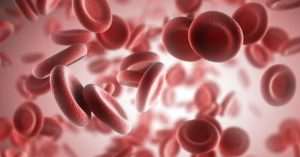
Ashanti Regional Directorate of the Ghana Health Service (GHS) has held a stakeholders' meeting over the implementation of the Girls’-Folate Tablet Supplementation (GIFTS) Programme in Kumasi.
GIFTS, a public health intervention, is designed to provide adolescent girls with free weekly iron and folic acid (IFA) supplements, to help prevent and reduce reported high prevalence of iron-deficiency anaemia among girls in that age bracket attending second cycle schools.
It is a collaboration between the GHS and the Ghana Education Service (GES) with funding from the United Nations Children’s Fund (UNICEF).
Dr Kwasi Awudzi-Yeboah, Deputy Regional Director in charge of Public Health, said the goal of the programme is to stem the incidence among the target group – girls between 10 and 19 years.
He said available statistics of iron-deficiency anaemia cases in women generally recorded in health facilities in the Region in the year 2017-2018, indicated a rising trend and the target group had been earmarked as the critical mass for the intervention.
The Deputy Regional Director of Health gave the figures as 93,451 in 2017 and 107, 245 in 2018.
“What has informed the selection of this age group is their susceptibility due to their monthly discharge.
Again, they would soon start the reproductive life and so need to be healthy by way of proper nutrition and blood boosting supplementation, as this would always raise their haemoglobin levels, to remove all the risk associated with performing that biological function”, he said.
Dr Yeboah Ewudzi said the expectation is to reduce anaemia levels by at least 20 per cent from baseline among adolescent girls in such school by the end of 2019”, he said.
Community health nurses, according to him, would also reach out to out-of-school adolescent girls at the community level.
He said the tablets were only meant to supplement or complement the nutrients derived from the variety of food they ate and cautioned against low intake of iron-rich foods.
All stakeholders are encouraged to play active roles in the implementation of the programme to achieve the desired results, Dr Ewudzi said.
The meeting was attended by representatives from the Ghana Education Service (GES), the Ghana Health Service (GHS), traditional and religious leaders as well as civil society organisations.
–GNA




 Akufo-Addo spotted ordering chiefs to stand for his handshake
Akufo-Addo spotted ordering chiefs to stand for his handshake
 Akufo-Addo ‘disrespects’ every chief in Ghana except Okyenhene — NDC Communicato...
Akufo-Addo ‘disrespects’ every chief in Ghana except Okyenhene — NDC Communicato...
 Supreme Court clears way for dual citizens to hold key public positions
Supreme Court clears way for dual citizens to hold key public positions
 Be transparent, don’t suppress the truth – Prof. Opoku-Agyemang to Jean Mensa
Be transparent, don’t suppress the truth – Prof. Opoku-Agyemang to Jean Mensa
 ‘I won’t tell the world I was only a driver’s mate during challenges’ – Prof Jan...
‘I won’t tell the world I was only a driver’s mate during challenges’ – Prof Jan...
 We’ll prosecute corrupt officials of Akufo-Addo’s govt – Prof Jane Naana
We’ll prosecute corrupt officials of Akufo-Addo’s govt – Prof Jane Naana
 [Full text] Acceptance speech by Prof Jane Naana Opoku-Agyemang as 2024 NDC Runn...
[Full text] Acceptance speech by Prof Jane Naana Opoku-Agyemang as 2024 NDC Runn...
 Election 2024: Don’t be complacent, we haven’t won yet – Asiedu Nketia cautions ...
Election 2024: Don’t be complacent, we haven’t won yet – Asiedu Nketia cautions ...
 Election 2024: Stop fighting over positions in Mahama’s next govt – Asiedu Nketi...
Election 2024: Stop fighting over positions in Mahama’s next govt – Asiedu Nketi...
 Prof Jane Naana Opoku-Agyemang will restore dignity of vice presidency – Fifi Kw...
Prof Jane Naana Opoku-Agyemang will restore dignity of vice presidency – Fifi Kw...
